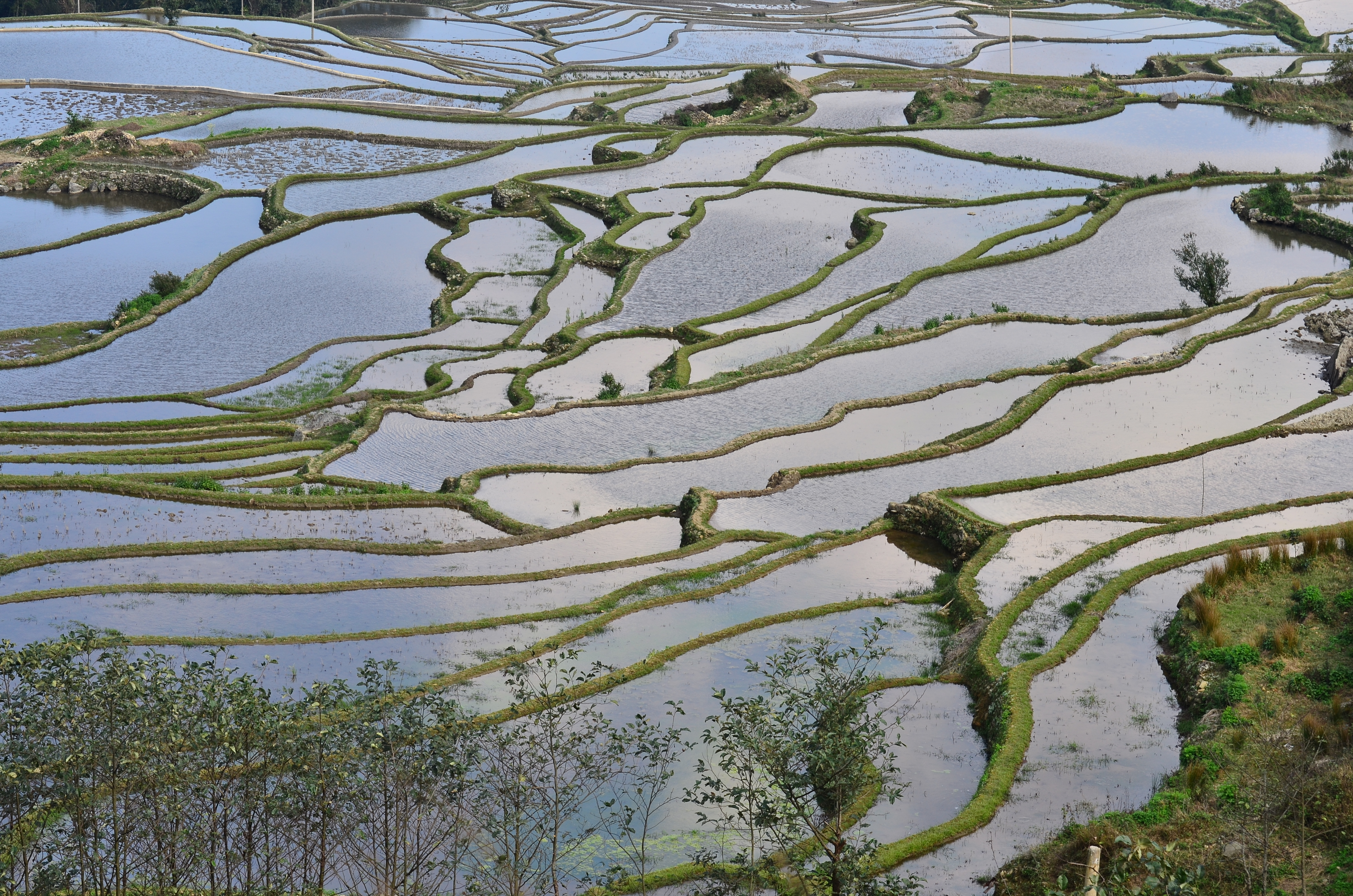

Downloads
DOI:
https://doi.org/10.58981/bluepapers.2025.2.14Published
Issue
Section
License
Copyright (c) 2025 Tianchen Dai, Carola Hein

This work is licensed under a Creative Commons Attribution 4.0 International License.
How to Cite
Abstract
The Cultural Landscape of Honghe Hani Rice Terraces, inscribed on the World Heritage List in 2013, integrates traditional farming, irrigation, water management and the Hani people’s spiritual relationship with nature. It embodies traditional ecosystemic practices and provides a model for sustainable development aligned with the United Nations’ Sustainable Development Goals (SDGs). The terraces exemplify a comprehensive water management system (SDG 6), grounded in resilient communities (SDG 11), efficient traditional farming (SDG 12) and climate-resilient water management (SDG 13). This article examines this traditional approach to water management to offer insights regarding the challenges involved in conserving and (re)creating holistic water systems. In the context of climate change, safeguarding this cultural landscape against flooding, drought and socioeconomic pressures is of critical importance.
References
Dai Tianchen and Carola Hein. 2021. “Port Cities UNESCO World Heritage News: Removing Liverpool and Adding Quanzhou.” PortCityFutures (November 13th). https://www.portcityfutures.nl/news/port-cities-unesco-world-heritage-news-removing-liverpool-and-adding-quanzhou.
Dai Tianchen and Carola Hein. 2023. “Exploring the Descriptions of World Heritage Properties through the Perspective of Water using a Narrative Approach.” International Journal of Heritage Studies 29 (12): 1–24. https://doi.org/10.1080/13527258.2023.2252792.
Dai Tianchen, Carola Hein and Dan Baciu, D. 2021. “Heritage Words: Exploring Port City Terms.” European Journal of Creative Practices in Cities and Landscapes 4 (2): 36–59. https://doi.org/10.6092/issn.2612-0496/12149.
Liu Moucheng, Bai Yunxiao, Lun Yang and Jiao Wenjun. 2020. “Effect of Ecological Compensation Standard on Farmers’ Production Behavior: A Case Study of Hani Rice Terraces in Honghe County, Yunnan Province. Journal of Chinese Ecological Agriculture 28 (9): 1339–49.
Lu, P. 2012. “Ecological Problems and Solutions of Hani Terrace in Honghe River.” Agricultural Archaeology 4: 195–98.
Ma X., Zhao Y. , Guo L., Yang J. B. 2024. “Spatial-Temporal Changes of Land Use and Ecosystem Service Value in Hani Terrace from 2005 to 2020.” Journal of Minzu University of China (Natural Science Edition) 33 (3):14–23.
People’s Government of Honghe Hani and Yi Autonomous Prefecture. 2025. “What are the Assistance Policies Implemented by Mengzi City for College Students who Return Home to Start their Own Businesses?” https://www.hh.gov.cn/ldxx_xx.jsp?urltype=leadermail.LeaderMailContentUrl&wbtreeid=8791&leadermailid=326F1BC6BE3E43D065CB1C95167AFDF.
UNESCO World Heritage Centre. 2013. Cultural Landscape of Honghe Hani Rice Terraces. UNESCO World Heritage Centre. https://whc.unesco.org/en/list/1111/.
Wu Wenjia and Sun Juixia. 2022. “The Mechanism and Effect of World Cultural Heritage Site of Honghe Hani Rice Terraces in the Context of Tourism-Based Poverty Alleviation.” Journal of South China Normal University (Natural Science Edition) 54 (5): 108–16. DOI: 10.6054/j.jscnun.2022077
Xu K., Yi X., Zhang Y. and Yin C. 2024. “Comprehensive Evaluation of Carbon Footprint and Economic Benefits of Rice-Fish Co-Culture in the Hani Terraced Fields.” Acta Ecologica Sinica 44 (23): 10619–30.
Zhang D. 2023. “The Road to the View of Grand Heritage: The Experience and Enlightenment of Honghe Hani Terrace under the Overall Protection of Multiple Types of Heritage.” Northwest National Research 6: 118–28.
Zhang Shengrui, Zhong Linsheng, Zhou Rui and Wang Yingjie. 2017. “Ecotourism Monitoring in the Yunnan Honghe Hani Rice Terraces Heritage Property.” Journal of Geographical Research 36 (5): 887–98. https://doi.org/10.11821/dlyj201705007.


